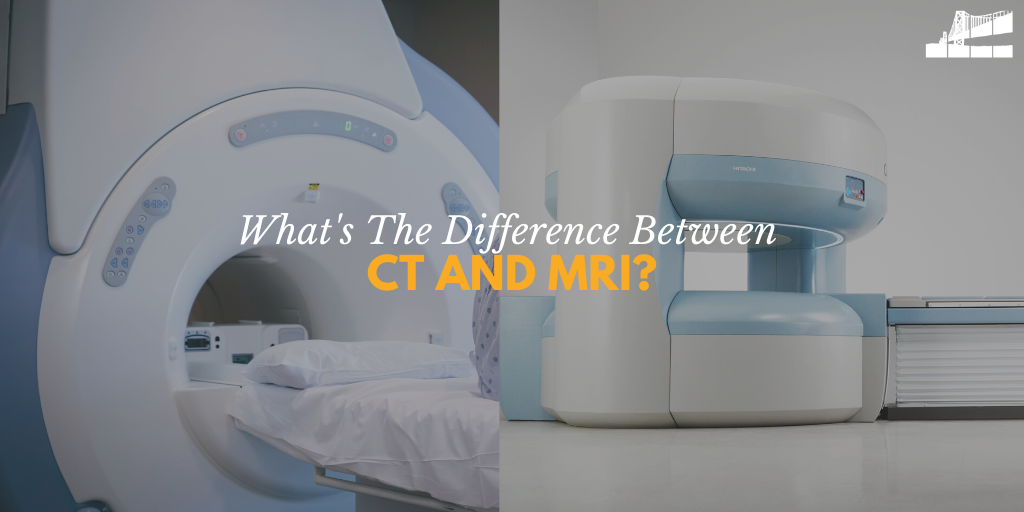Most people have some idea what an MRI is, but not everyone has undergone an MRI exam before. If you have an MRI scheduled in the future for the first time, or if you’re just curious, then you will mostly likely want to know what you should expect to happen. So, for those of you undergoing a closed-bore MRI, here is some information that will help you understand what is going to happen.
What is a Closed Bore MRI?
At this point, you probably know that an MRI is some type of a test to help doctors see your injury, and most people already know that’s roughly what MRIs do.
MRI stands for magnetic resonance imaging, and it works by using very powerful magnetic fields and high-frequency radio waves to provide an image of somewhere inside the patient’s body (the area being inspected). MRIs provide those images by reading the energy being produced by water molecules once they re-align themselves following each pulse of radio waves.
Of course, this isn’t necessarily a quick procedure like an X-ray or a CT scan. MRIs need anywhere from 15 to 90 minutes to provide doctors with the images they need, so most patients can expect that their MRI will take at least 30 minutes.
Why is This Significant For Closed Bore MRIs?
Well, this matters for a few reasons. For starters, you will be needing to lay down and remain as still as possible for the duration of the exam, which can be difficult for some patients. In addition to being still for a prolonged period, comfort can be a concern for patients that undergo an MRI in a closed-bore machine because of the tight fit. For patients using a closed-bore machine, their number one concern usually has something to do with how they will feel about being “trapped” in the MRI machine for their exam.
While some people will not be able to suppress such concerns due to anxiety or claustrophobia, others can certainly lessen their negative feelings toward their exam in a few different ways. One of the best ways to begin to curve these feelings is just by understanding what you can expect to happen during your experience.
What Makes A Closed Bore MRI Different?
Closed-bore MRIs are one of the more traditional MRI machines. They have an opening with a diameter around 50-60 centimeters (most typically around 60 cm). Most people describe the bore, which is the opening to the MRI machine, as an entrance into a long, narrow tunnel.
Closed-bore MRIs produce images with very high levels of clarity. Such high quality is enabled by the magnetic strength, which is between 1.0 and 3.0 Tesla. Though the clarity is strong, patients are most likely to experience anxiety and discomfort using closed-bored MRIs as the space can seem very enclosing and trapping. Of course, not everyone feels that way during a closed-bore MRI, but it’s something to be wary of just in case.
What if You Don’t Think a Closed-Bore MRI Will Work For You?
There’s two major reasons that someone might feel like they cannot undergo an MRI in a closed-bore machine. First, they physically don’t fit in the bore comfortably, or at all. If this is the case, you definitely need to talk to your doctor about other possibilities, such as an open-bore MRI.
The other reason is the anxiety and/or fear related to the tightness of the machine. For some, the fear and anxiety might be strong enough to make it so a closed-bore MRI just isn’t an option. Again, if you feel this way you should talk to your doctor as soon as you can about other options.
However, if you feel like you might be scared or anxious, there are ways to lessen those feelings besides learning about the procedure. One of the most common ways would be to ask the doctor about taking some form of a sedative so you can better relax and rest during your MRI. Otherwise, you can try things like falling asleep or meditating during your MRI.
At the end of the day, there are many factors that will play into your MRI experience, and the type of MRI machine for your exam will just be one of them. The best way to prepare for your MRI day is just to learn what you should expect to happen that way you know what to do in the case that something might be uncomfortable for you. If you have any other questions or concerns, never hesitate to ask your BICRAD private radiology center staff, as we will be able to best provide you with answers specific to your case.







